
When students become anxious or unwilling to write, that frustration spills across their school day and into every subject. That’s no fun. Thankfully, once you understand the underlying cause of your child’s writing woes, finding an efficient solution can become a lot easier. This article offers five questions you can ask yourself in order to identify the roots of your child’s writing distress.
1. Is My Student Writing Too Much, Too Young?
Sometimes we forget that for young children, writing is really hard work. They are still developing muscles in their little hands, making the act of writing a much more physically demanding task than it is for us adults.
For beginning writers, The Well-Trained Mind recommends starting students out with just 5 minutes of penmanship practice a day, then gradually increasing to 15 minutes as they are able. This might seem short, but it allows students to develop writing without associating it with physical pain or mental frustration.
There is no need to push young kids to write paragraphs and paragraphs while their hand muscles are still developing. By starting slow and gentle, your student can avoid a lot of writing frustration.
2. Has My Student Practiced the Separate Mental Processes in Writing?
In The Well-Trained Mind, Susan Wise Bauer points out that experienced writers do two things simultaneously without needing to think much about it: (1) put thoughts into words and (2) write words on paper.
For new or struggling writers, separating the physical and mental tasks of writing is a great way to ease frustrations. It allows students to practice crafting high-quality sentences, without the physical frustration of writing the sentence down at the same time.
Here is an example: rather than asking your child to write down a three sentence summary of a book they just read, ask them to narrate their summary out loud. As they verbalize their summary, make sure that they use complete sentences. Write down what they say. Then, you can either have them copy the sentence from your notebook or speak the sentence back to them so they can focus on writing it down.
For more recommendations on how to successfully separate these two processes for your writers, check out The Well Trained Mind or try our writing curriculum, Writing With Ease, where we do all the work of creating age-appropriate assignments for you.
3. Are My Student’s Writing Assignments Too Long?
When it comes to writing, quality is more important than quantity. For a student who hates writing, that may come as a huge relief.
It is trendy to ask late elementary and middle school students to write long stories, opinion essays, and research papers. Unfortunately, forcing students to push out paragraph after paragraph doesn’t guarantee they’ll produce even one high-quality sentence. Instead, as they push out words without proper writing instruction, they may cement bad habits. This leaves students overwhelmed, frustrated, and still unable to produce a decent sentence.
The good news is that elementary and middle school students do not need to write long papers to grow into good writers. Give yourself permission to shorten assignments, requiring quality, not quantity. Focus on teaching them to write a proper sentence. Once they can do that, move on to organizing a short paragraph and so on.
4. Are My Student’s Writing Assignments Meaningless?
The point of writing is to communicate. If your student, particularly your fiercely independent adolescent, perceives writing assignments to be busywork, they are going to have a hard time staying motivated.
Show your student how words can help them with their other pursuits. They could write a blog about a hobby they’ve just started, keep lab notes for an ongoing science project, find a penpal (grandparents are great for this!), or produce a family newspaper.
You can also incorporate writing across curricula, rather than siloing it into one subject in the school day. When you spread writing practice across subjects, students receive additional practice and boost their retention of class material. It’s a win-win! If you need inspiration for how to do this, check out The Well-Trained Mind, which offers a variety of ideas for integrating writing with other subjects.
5. Am I Forcing My Student to Write Creatively?
It is important to distinguish between expository writing, which is essential, and creative writing, which is optional. Expository writing includes any writing that seeks to explain something. Whether it is instructions for how to make a chocolate cake or an argument for why a university should let you into their competitive degree program, everyone will use expository writing at some point in their life. Creative writing, or fiction and poetry, is not an essential skill. However, some students will enjoy and benefit deeply from it.
In The Well-Trained Mind, Susan Wise Bauer points out that not all grammar-level students are ready for creative writing. Even older students may never develop a deep desire to write inspiring creative prose. That’s okay. Nobody needs to be able to write a killer short story to be successful in life. That may come as a huge relief to concrete thinkers who have no interest in creative writing. Rather than forcing them to beat their head against blank paper, allow them to skip creative writing assignments and focus instead on building essential expository writing skills, like organizing their thoughts with outlines, creating and analyzing arguments, and communicating with effective sentence structure.
In addition, do not assume that giving students more creative freedom in their writing assignments will make things easier for them. For some students, open-ended writing assignments are a terrifying curse, not a blessing. For example, I once had a student who could whiz through math assignments, but hated writing. At first, I tried to entice him with increasingly creative assignments: “You can write fanfiction for your favorite TV show,” became “you can write about literally anything!” Nothing worked. That is until I used the metaphor of computer programming to show him that if he followed the rules of grammar and completed a detailed outline, he could build a strong argument. Outlining gives concrete thinkers the tools they need to take the frustrating mystery and guesswork out of writing.
Conclusion
If your student hates writing there are underlying issues that might contribute to their frustration:
- If your student is young, be gentle and start with small doses. Remember that your student is still developing muscles in her little hands. Writing is taxing work!
- If your student is new to writing, use narration and dictation to separate the tasks of putting thoughts into words and words onto paper.
- If your student hates writing long assignments, remember quality trumps quantity. Require good writing, not loads of it.
- If your student thinks his writing assignments are meaningless, try integrating writing with other subjects and interests, rather than requiring hours of isolated writing practice.
- Finally, if your student struggles with the open-ended aspect of writing, help him outline his assignments, even his paragraphs. Do not require creative writing for students who are not drawn to it.
For more ideas and specific advice on moving forward, please refer to The Well-Trained Mind.
Side note: If your student is diagnosed with dysgraphia, a learning disability that affects handwriting, we have general resources and tips for adapting our products.
Recommended Products
-

Juneteenth Booklist & Activities
0 out of 5$0.00 Add to cart -
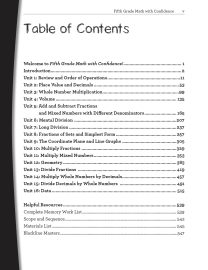
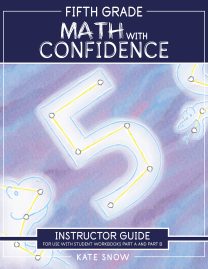
Fifth Grade Math with Confidence Instructor Guide
0 out of 5Starting at:$36.95Original price was: $36.95.$27.71Current price is: $27.71. Select options -
Sale!

Hansel & Gretel and Other Stories: Downloadable MP3
0 out of 5$12.95Original price was: $12.95.$8.42Current price is: $8.42. Add to cart -
Sale!

Dorothy and the Wizard in Oz: Downloadable MP3
0 out of 5$25.95Original price was: $25.95.$16.87Current price is: $16.87. Add to cart -
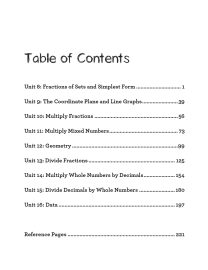 Sale!
Sale!
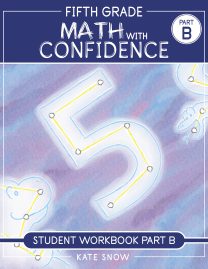
Fifth Grade Math with Confidence Student Workbook B
0 out of 5$16.46 – $21.56 Select options This product has multiple variants. The options may be chosen on the product page -
 Sale!
Sale!
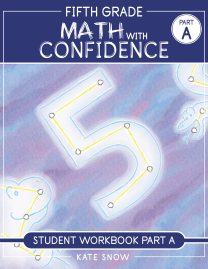
Fifth Grade Math with Confidence Student Workbook A
0 out of 5$16.46 – $21.56 Select options This product has multiple variants. The options may be chosen on the product page
ABOUT THE AUTHOR
Well-Trained Mind Press Staff
Join over 100,000 homeschooling families
For the latest offers, educational insights, products and more.
By joining you agree to our privacy policy.


















